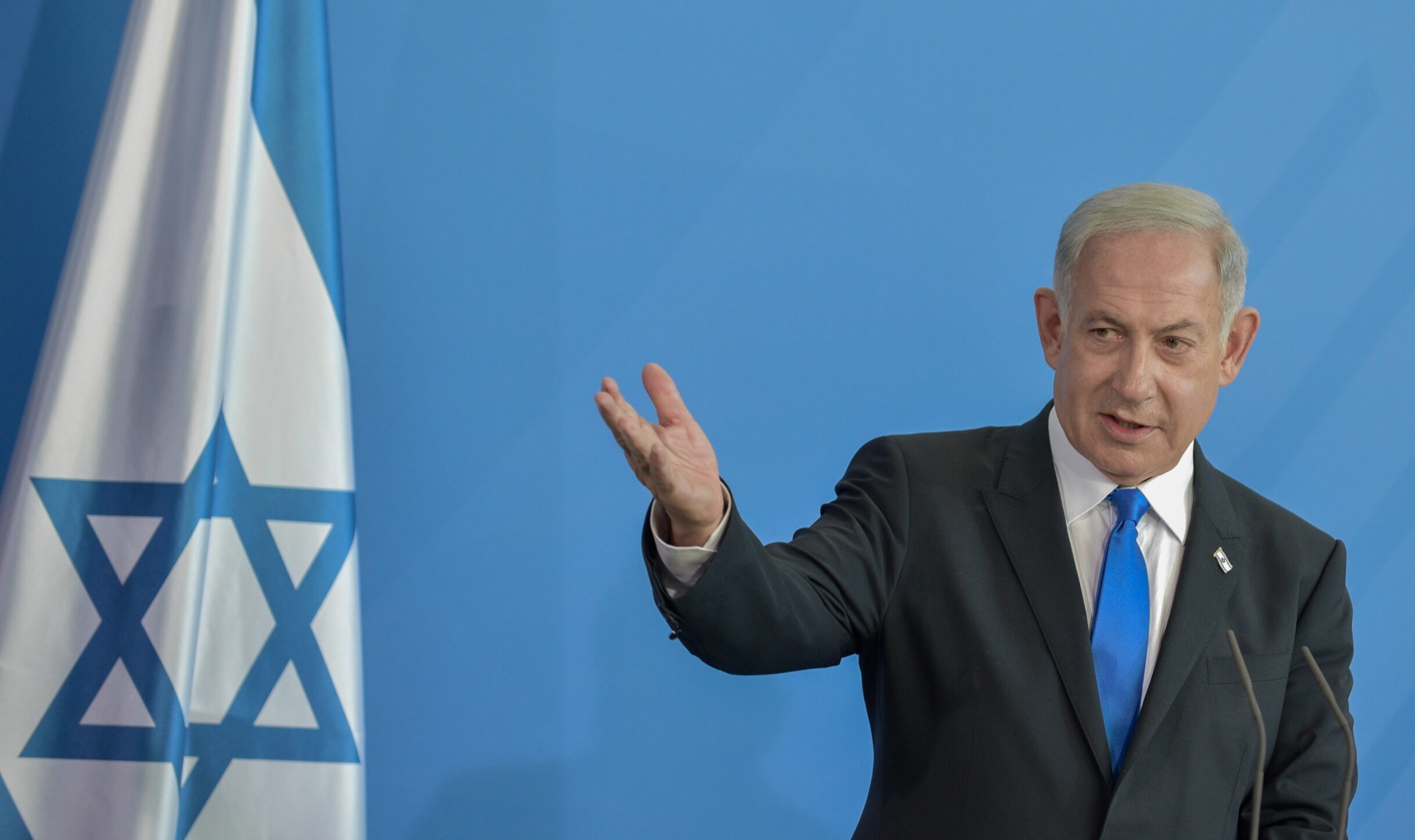This Is Not Our War
The U.S. must distance itself from an Israeli war of choice.

As of this writing, Israel is going to conducting the first wave of significant military action against Iran—“going kinetic,” in the latest phrase everyone in the news business has suddenly discovered. (Why “kinetic,” denoting mere movement? Why not “go dynamic,” denoting the transfer of energy or application of force? Why not “go commotive,” denoting the involvement of very loud noises? Impossible to say.) Directives went out Wednesday for Americans to evacuate the region; it is expected that Iran will include American assets on its list of retaliation targets on the assumption that any Israeli attack, even one that occurs without direct U.S. military support, occurs with the consent of Israel’s biggest sponsor. Secretary of State Marco Rubio issued a statement during the Thursday night attacks disclaiming American involvement. It remains to be seen whether anyone will believe him.
It’s difficult to escape the sense that it didn’t have to be this way. The U.S.–Iran dealmaking process had shown promise at various points, and it remains obscure what changed between then and now. I don’t know enough about Israeli domestic politics to feel confident in explaining things in terms of Benjamin Netanyahu’s varied fortunes; nor was I in the room when the decision was made to regard limited Iranian uranium enrichment as impermissible. At this point, it begins to seem academic.
What will happen next? I doubt that anyone at this point will openly say that the U.S. should commit to an increased troop presence in the Middle East to support Israeli operations against the Islamic Republic; Donald Trump in particular knows that a fresh ground war is political poison. No, we’ll start with air support, and maybe some bunker-busters, because, for all its vaunted military-industrial base, somehow Israel just can’t make a bunker-buster big enough to get to those reactors. The Islamic Republic will, of course, try to rebuild; Israel and its supporters will be committed at first to a policy of “mowing the grass,” of conducting strikes along an indefinite timescale to prevent an Iranian nuclear program. Iran will retaliate in an asymmetrical and ugly fashion, inviting further sessions with John Deere and the Weedwacker and justifying further American commitments of support to Israel. At the same time, Iran will harden its resolve to acquire a nuclear deterrent, leading to more of the same.
The ongoing expense and festering chaos from “mowing the grass”—especially if any of Iran’s asymmetric retaliations involve, for example, terrorism in the American homeland—will always tend to encourage policymakers to find a more permanent solution: regime-change. At that point, we will have come a long way from air support and a few loaner bombs.
And if we were to pursue regime-change, who would replace the ayatollahs? The shah, whose family’s police state was so hated that Khomeini seemed preferable? The MEK’s bizarre mix of Islamism and Marxism? A miraculous, autochthonous secular liberal democracy with Western-style human rights norms? None of these options seems both likely and desirable. Each would demand American support up to and including direct military intervention.
The notional principal on this course of action also has significant incentives to draw the U.S. into direct involvement. Israel is increasingly diplomatically isolated; this may be just or unjust, but that is beside the point that it is simply true. It is implicated in wars on multiple fronts, none of which seem to have clear ends in sight; these may be just or unjust, but that is beside the point that they are happening. Garrison states rarely do well in the long run. (Has anyone checked in on Biafra lately? Rhodesia? Pakistan?) Add to the difficulties of a permanent war economy the issue of raw scale. Israel is a nation of 9.7 million. Iran is a nation of 90.6 million. Perhaps it is still in Israel’s best interests to fight this war—although we’re doubtful—but it’s a big bite to chew. You’d try to get the U.S. involved, too.
And so what? The fact that Iran is on the American periphery (and, relative to the U.S., weak) means that the negative consequences of even direct involvement will come at a lag and at first distantly, much as the negative consequences of the Iraq War did. But perhaps not quite so much of a lag, nor quite so distantly: American might is stretched much thinner than it was in 2003, American society is much less cohesive, and the American Treasury is in much more tenuous condition.
While this situation is not ideal, the U.S. can take steps to ameliorate the damage. Part of statesmanship is accounting for the follies of future leaders and preempting them. Sometimes, getting out of a region can be accomplished only by getting out. Limiting American involvement in Israel’s war effort, including reducing or eliminating military aid, will bring our diplomatic and fiscal exposure more in line with our regional goals, which are poorly served by an Israeli war with Iran—a war that could well set us on the road to further imperial entanglement for years to come. Continuing to reduce the American military footprint in the region will limit our personnel exposure and give weight to Rubio’s claims that the U.S. is not involved in this fight.
American national interests in the Middle East remain the same as ever: discouraging the rise of a hegemonic power, discouraging Islamic terrorism, and keeping the Red Sea and Persian Gulf sea lanes free. The use of American resources in the Middle East must be commensurate with these goals. While the course we are on staves off the already distant prospect of Iranian hegemony, it will egg on Islamic terrorism and tempt hostile action on the sea lanes as Iran and its proxies seek leverage against their enemies. If the conflict is inevitable, the American message must be clear: This is not our war.
The post This Is Not Our War appeared first on The American Conservative.











